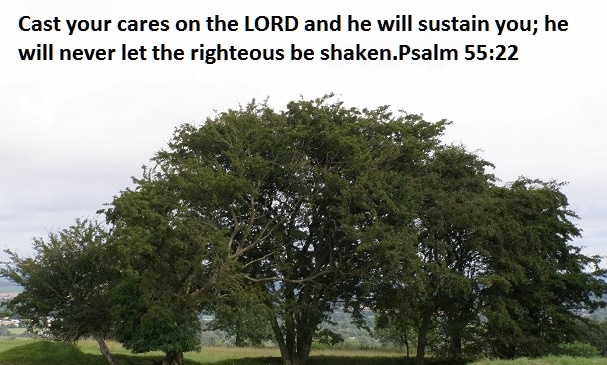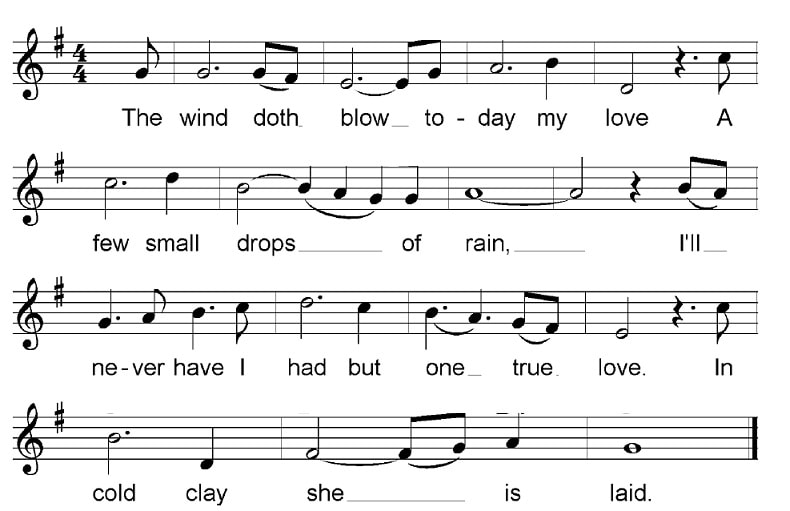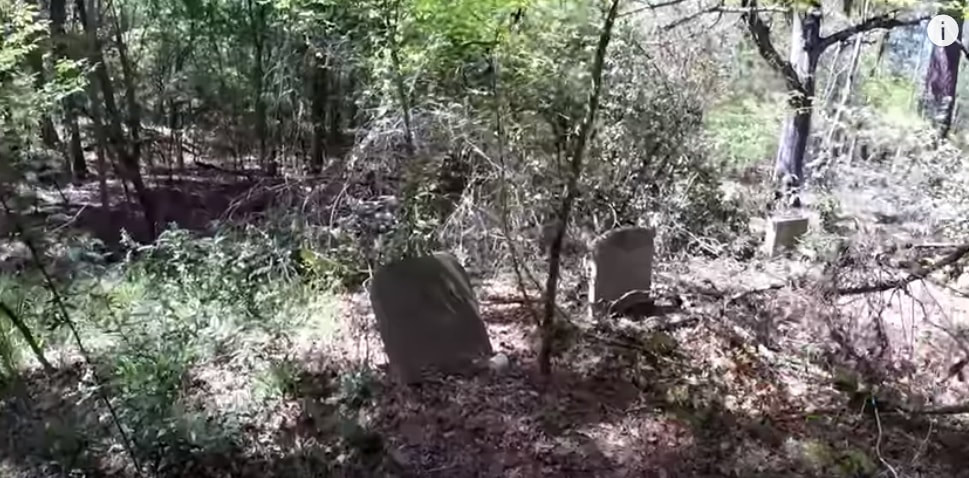The Unquiet Grave, The Dubliners Lyrics And Chords
This one has Luke Kelly doing the singing,The unquiet grave sheet music notes in solfege [ Do re mi ] format included. a very sad folk song indeed. Guitar chords worked by Marc Fahrbach, it would seem that Luke Kelly got to sing all the slow sad songs with The Dubliners. The sheet music and tin whistle notes are included. Plus the tenor guitar tab in CGDA. Lately recorded by Siobhan Miller.
The (G)wind does (C)blow to(D)day, my (D7)love,
(C)A few small (G)drops of (D)rain;(D7)
(G)Never had I (Bm)had but (Am)one true-(C)love,
In (G)cold grave (D)she (D7)is (G)lain.
I'll (G)do as (C)much for (D)my true-(D7)love,
(C)As any (G)young man (D)may;(D7)
I'll (G)sit and (Bm)mourn all (Am)on her (C)grave
A (G)twelvemonth (D)and (D7)a (G)day.
The (G)twelvemonth (C)and a (D)day being (D7)gone,
(C)A voice spoke (G)from the (D)deep(D7)
'(G)Who is it (Bm)sits all (Am)on my (C)grave,
And (G)will not (D)let (D7)me (G)sleep?
'Tis (G)I, tis (C)I, thine (D)own true-(D7)love
(C)Who sits u(G)pon your (D)grave;(D7)
For I (G)crave one (Bm)kiss from (Am)your sweet (C)lips,
And (G)that is (D)all (D7)I (G)seek.
You (G)crave one (C)kiss from my (D)clay-cold (D7)lips;
(C)But my breath is (G)earthly (D)strong;(D7)
Had (G)you one (Bm)kiss from my (Am)clay-cold (C)lips,
Your (G)time would (D)not (D7)be (G)long.
My (G)time be (C)low, my (D)time be (D7)short
(C)Tomorrow (G)or to(D)day;(D7)
May (G)God in (Bm)heaven have (Am)all my (C)soal
But I’ll (G)kiss your (D)lips (D7)of (G)clay.
"See (G)down in (C)yonder (D)garden (D7)green,
(C)Love, where we (G)used to (D)walk,(D7)
The (G)sweetest (Bm)flower that (Am)ever (C)grew
Is (G)withered (D)to (D7)a (G)stalk.
The (G)stalk is (C)withered (D)dry, my (D7)love,
(C)So will our (G)hearts de(D)cay;(D7)
So (G)make your(Bm)self con(Am)tent, my (C)love,
Till (G)death calls (D)you (D7)a(G)way
(C)A few small (G)drops of (D)rain;(D7)
(G)Never had I (Bm)had but (Am)one true-(C)love,
In (G)cold grave (D)she (D7)is (G)lain.
I'll (G)do as (C)much for (D)my true-(D7)love,
(C)As any (G)young man (D)may;(D7)
I'll (G)sit and (Bm)mourn all (Am)on her (C)grave
A (G)twelvemonth (D)and (D7)a (G)day.
The (G)twelvemonth (C)and a (D)day being (D7)gone,
(C)A voice spoke (G)from the (D)deep(D7)
'(G)Who is it (Bm)sits all (Am)on my (C)grave,
And (G)will not (D)let (D7)me (G)sleep?
'Tis (G)I, tis (C)I, thine (D)own true-(D7)love
(C)Who sits u(G)pon your (D)grave;(D7)
For I (G)crave one (Bm)kiss from (Am)your sweet (C)lips,
And (G)that is (D)all (D7)I (G)seek.
You (G)crave one (C)kiss from my (D)clay-cold (D7)lips;
(C)But my breath is (G)earthly (D)strong;(D7)
Had (G)you one (Bm)kiss from my (Am)clay-cold (C)lips,
Your (G)time would (D)not (D7)be (G)long.
My (G)time be (C)low, my (D)time be (D7)short
(C)Tomorrow (G)or to(D)day;(D7)
May (G)God in (Bm)heaven have (Am)all my (C)soal
But I’ll (G)kiss your (D)lips (D7)of (G)clay.
"See (G)down in (C)yonder (D)garden (D7)green,
(C)Love, where we (G)used to (D)walk,(D7)
The (G)sweetest (Bm)flower that (Am)ever (C)grew
Is (G)withered (D)to (D7)a (G)stalk.
The (G)stalk is (C)withered (D)dry, my (D7)love,
(C)So will our (G)hearts de(D)cay;(D7)
So (G)make your(Bm)self con(Am)tent, my (C)love,
Till (G)death calls (D)you (D7)a(G)way
Guitar chords for the key of D
The (D)wind does (G)blow to(A)day, my (A7)love,
(G)A few small (D)drops of (A)rain;(A7)
(D)Never had I (F#m)had but (Em)one true-(G)love,
In (D)cold grave (A)she (A7)is (D)lain.
I'll (D)do as (G)much for (A)my true-(A7)love,
(G)As any (D)young man (A)may;(A7)
I'll (D)sit and (F#m)mourn all (Em)on her (G)grave
A (D)twelvemonth (A)and (A7)a (D)day.
The (D)twelvemonth (G)and a (A)day being (A7)gone,
(G)A voice spoke (D)from the (A)deep(A7)
'(D)Who is it (F#m)sits all (Em)on my (G)grave,
And (D)will not (A)let (A7)me (D)sleep?
'Tis (D)I, tis (G)I, thine (A)own true-(A7)love
(G)Who sits u(D)pon your (A)grave;(A7)
For I (D)crave one (F#m)kiss from (Em)your sweet (G)lips,
And (D)that is (A)all (A7)I (D)seek.
You (D)crave one (G)kiss from my (A)clay-cold (A7)lips;
(G)But my breath is (D)earthly (A)strong;(A7)
Had (D)you one (F#m)kiss from my (Em)clay-cold (G)lips,
Your (D)time would (A)not (A7)be (D)long.
My (D)time be (G)low, my (A)time be (A7)short
(G)Tomorrow (D)or to(A)day;(A7)
May (D)God in (F#m)heaven have (Em)all my (G)soal
But I’ll (D)kiss your (A)lips (A7)of (D)clay.
"See (D)down in (G)yonder (A)garden (A7)green,
(G)Love, where we (D)used to (A)walk,(A7)
The (D)sweetest (F#m)flower that (Em)ever (G)grew
Is (D)withered (A)to (A7)a (D)stalk.
The (D)stalk is (G)withered (A)dry, my (A7)love,
(G)So will our (D)hearts de(A)cay;(A7)
So (D)make your(F#m)self con(Em)tent, my (G)love,
Till (D)death calls (A)you (A7)a(D)way
The (D)wind does (G)blow to(A)day, my (A7)love,
(G)A few small (D)drops of (A)rain;(A7)
(D)Never had I (F#m)had but (Em)one true-(G)love,
In (D)cold grave (A)she (A7)is (D)lain.
I'll (D)do as (G)much for (A)my true-(A7)love,
(G)As any (D)young man (A)may;(A7)
I'll (D)sit and (F#m)mourn all (Em)on her (G)grave
A (D)twelvemonth (A)and (A7)a (D)day.
The (D)twelvemonth (G)and a (A)day being (A7)gone,
(G)A voice spoke (D)from the (A)deep(A7)
'(D)Who is it (F#m)sits all (Em)on my (G)grave,
And (D)will not (A)let (A7)me (D)sleep?
'Tis (D)I, tis (G)I, thine (A)own true-(A7)love
(G)Who sits u(D)pon your (A)grave;(A7)
For I (D)crave one (F#m)kiss from (Em)your sweet (G)lips,
And (D)that is (A)all (A7)I (D)seek.
You (D)crave one (G)kiss from my (A)clay-cold (A7)lips;
(G)But my breath is (D)earthly (A)strong;(A7)
Had (D)you one (F#m)kiss from my (Em)clay-cold (G)lips,
Your (D)time would (A)not (A7)be (D)long.
My (D)time be (G)low, my (A)time be (A7)short
(G)Tomorrow (D)or to(A)day;(A7)
May (D)God in (F#m)heaven have (Em)all my (G)soal
But I’ll (D)kiss your (A)lips (A7)of (D)clay.
"See (D)down in (G)yonder (A)garden (A7)green,
(G)Love, where we (D)used to (A)walk,(A7)
The (D)sweetest (F#m)flower that (Em)ever (G)grew
Is (D)withered (A)to (A7)a (D)stalk.
The (D)stalk is (G)withered (A)dry, my (A7)love,
(G)So will our (D)hearts de(A)cay;(A7)
So (D)make your(F#m)self con(Em)tent, my (G)love,
Till (D)death calls (A)you (A7)a(D)way
The Unquiet Grave is a traditional English folk song that has been passed down through oral tradition for centuries. Its origin and exact meaning are unknown, and it has been recorded and interpreted by countless artists throughout history. The song’s haunting melody and lyrics have captivated listeners and continue to do so to this day.
The first known mention of The Unquiet Grave dates back to the 17th century, where it was recorded in a collection of ballads known as the “Percy Folio”. However, the origins of the song are believed to be much older, possibly dating back to the medieval era. This is supported by the fact that many versions of the song feature archaic language and references to customs and beliefs from that time period.
One of the most notable aspects of The Unquiet Grave is its haunting and melancholic melody. The slow and mournful tune, often accompanied by a simple guitar or piano, perfectly complements the somber lyrics of the song. This combination has made it a popular choice for folk singers and musicians, and it has been recorded by artists such as The Dubliners, Siobhan Miller, Joan Baez, Bob Dylan,
The lyrics of The Unquiet Grave tell the story of a grieving lover who visits the grave of their deceased partner. The lover is tormented by the idea that their beloved is not at peace in the afterlife and is unable to rest. This theme of restless spirits is a common motif in traditional English folk songs, and it reflects the deep-rooted beliefs and fears of the people from that time period.
Many interpretations of the song suggest that it is a reflection of the societal views on death and mourning during the medieval era. In those times, it was common for people to believe in the existence of ghosts and spirits, and the idea of a restless soul was a prevalent fear. The Unquiet Grave may have been used as a way to express and process these fears and beliefs, providing solace to those who were grieving and offering a way to deal with the concept of death.
Furthermore, the song’s lyrics also touch upon themes of love, loss, and the enduring power of memory. The lover’s longing for their departed partner is evident in lines such as “cold blows the wind to my true love, and gently drops the rain,” and “my dear, my dear, the wind doth blow, and my love is lost to me.” These lines evoke a sense of sorrow and longing, highlighting the enduring nature of love and the pain of losing a loved one.
The Unquiet Grave has endured for centuries because of its timeless message and universal themes. It has been adapted and reinterpreted by different artists, and each version adds a new layer of meaning to the song. For example, Joan Baez’s version focuses on the environmental destruction caused by humans, using the original lyrics to lament the loss of nature and the damage done to the earth.
In addition to its musical and lyrical significance, The Unquiet Grave also holds cultural and historical value. As a traditional English folk song, it represents a part of the country’s rich cultural heritage and serves as a reminder of the customs and beliefs of previous generations. It has also been used as a tool for preserving history and passing down stories from one generation to the next.
In conclusion, The Unquiet Grave is a powerful and enduring folk song that has stood the test of time. Its haunting melody, melancholic lyrics, and universal themes of love, loss, and memory continue to resonate with listeners from all walks of life. As long as the song is passed down through oral tradition and recorded by new artists, it will continue to be a significant and cherished part of English folk music.
The first known mention of The Unquiet Grave dates back to the 17th century, where it was recorded in a collection of ballads known as the “Percy Folio”. However, the origins of the song are believed to be much older, possibly dating back to the medieval era. This is supported by the fact that many versions of the song feature archaic language and references to customs and beliefs from that time period.
One of the most notable aspects of The Unquiet Grave is its haunting and melancholic melody. The slow and mournful tune, often accompanied by a simple guitar or piano, perfectly complements the somber lyrics of the song. This combination has made it a popular choice for folk singers and musicians, and it has been recorded by artists such as The Dubliners, Siobhan Miller, Joan Baez, Bob Dylan,
The lyrics of The Unquiet Grave tell the story of a grieving lover who visits the grave of their deceased partner. The lover is tormented by the idea that their beloved is not at peace in the afterlife and is unable to rest. This theme of restless spirits is a common motif in traditional English folk songs, and it reflects the deep-rooted beliefs and fears of the people from that time period.
Many interpretations of the song suggest that it is a reflection of the societal views on death and mourning during the medieval era. In those times, it was common for people to believe in the existence of ghosts and spirits, and the idea of a restless soul was a prevalent fear. The Unquiet Grave may have been used as a way to express and process these fears and beliefs, providing solace to those who were grieving and offering a way to deal with the concept of death.
Furthermore, the song’s lyrics also touch upon themes of love, loss, and the enduring power of memory. The lover’s longing for their departed partner is evident in lines such as “cold blows the wind to my true love, and gently drops the rain,” and “my dear, my dear, the wind doth blow, and my love is lost to me.” These lines evoke a sense of sorrow and longing, highlighting the enduring nature of love and the pain of losing a loved one.
The Unquiet Grave has endured for centuries because of its timeless message and universal themes. It has been adapted and reinterpreted by different artists, and each version adds a new layer of meaning to the song. For example, Joan Baez’s version focuses on the environmental destruction caused by humans, using the original lyrics to lament the loss of nature and the damage done to the earth.
In addition to its musical and lyrical significance, The Unquiet Grave also holds cultural and historical value. As a traditional English folk song, it represents a part of the country’s rich cultural heritage and serves as a reminder of the customs and beliefs of previous generations. It has also been used as a tool for preserving history and passing down stories from one generation to the next.
In conclusion, The Unquiet Grave is a powerful and enduring folk song that has stood the test of time. Its haunting melody, melancholic lyrics, and universal themes of love, loss, and memory continue to resonate with listeners from all walks of life. As long as the song is passed down through oral tradition and recorded by new artists, it will continue to be a significant and cherished part of English folk music.
The unquiet grave tenor guitar tab in CGDA tuning followed by sheet music notes in solfege [ Do re mi ] format .
That Lonesome Grave Where My True Love Lies Song Lyrics
Underneath the weeping willow tree
There's a lonesome grave that calls to me
Where my true love lies in eternal sleep
In a bed of earth, six feet deep
Chorus:
That lonesome grave, it haunts my dreams
Where my true love rests, it seems
I come to visit, to lay down flowers
But oh, how I long for just one more hour
Verse 2:
The birds sing a mournful melody
As I kneel down on bended knee
Tears fall like rain on the cold, hard ground
As I whisper words, without a sound
Chorus:
That lonesome grave, it haunts my dreams
Where my true love rests, it seems
I come to visit, to lay down flowers
But oh, how I long for just one more hour
Bridge:
The sun sets, casting shadows long
As I sit and sing our favorite song
In this quiet place, I feel close to you
But oh, how I wish it wasn't true
Chorus:
That lonesome grave, it haunts my dreams
Where my true love rests, it seems
I come to visit, to lay down flowers
But oh, how I long for just one more hour
Outro:
As the moon rises in the starry sky
I wipe my tears and say goodbye
To that lonesome grave where my true love lies
Until we meet again, my love, goodbye.
Underneath the weeping willow tree
There's a lonesome grave that calls to me
Where my true love lies in eternal sleep
In a bed of earth, six feet deep
Chorus:
That lonesome grave, it haunts my dreams
Where my true love rests, it seems
I come to visit, to lay down flowers
But oh, how I long for just one more hour
Verse 2:
The birds sing a mournful melody
As I kneel down on bended knee
Tears fall like rain on the cold, hard ground
As I whisper words, without a sound
Chorus:
That lonesome grave, it haunts my dreams
Where my true love rests, it seems
I come to visit, to lay down flowers
But oh, how I long for just one more hour
Bridge:
The sun sets, casting shadows long
As I sit and sing our favorite song
In this quiet place, I feel close to you
But oh, how I wish it wasn't true
Chorus:
That lonesome grave, it haunts my dreams
Where my true love rests, it seems
I come to visit, to lay down flowers
But oh, how I long for just one more hour
Outro:
As the moon rises in the starry sky
I wipe my tears and say goodbye
To that lonesome grave where my true love lies
Until we meet again, my love, goodbye.
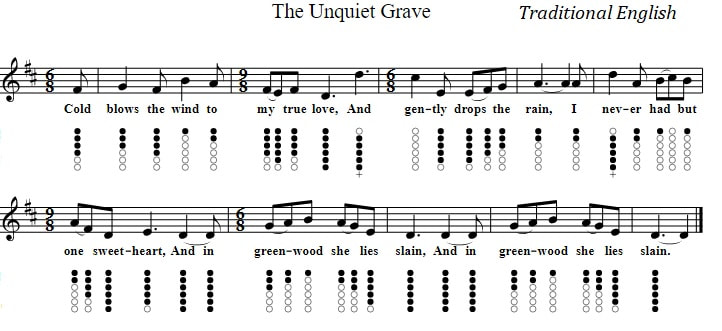

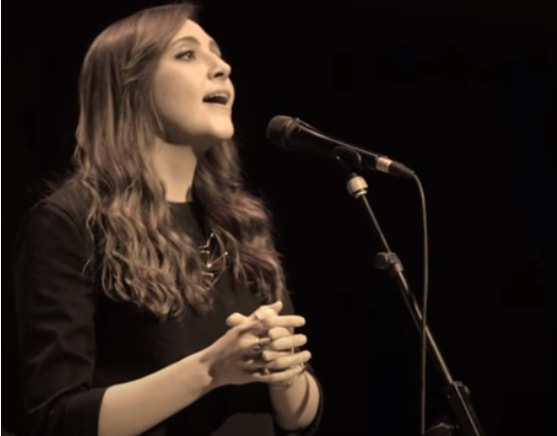
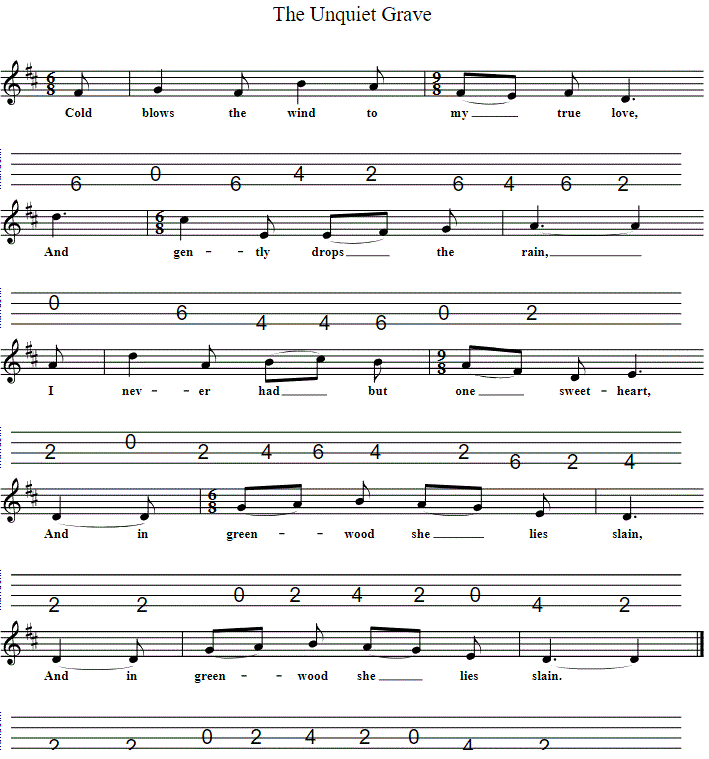
![The unquiet grave sheet music notes in solfege [ Do re mi ] format .](/uploads/4/3/3/6/43368469/the-unquiet-grave-sheet-music-solfege-do-re-me-notes1_orig.png)
